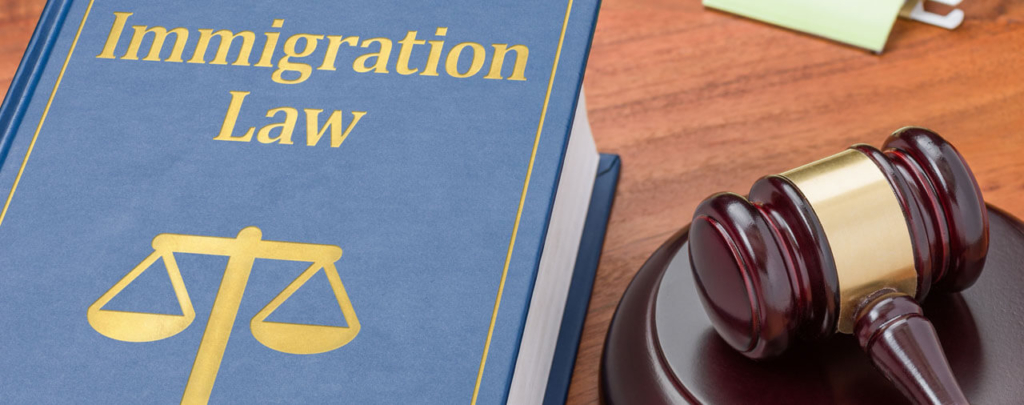- Introduction: Matter of C-C-, 3 I&N Dec. 221
- Text of the Decision
- Analysis of Matter of C-C-, 3 I&N Dec. 221
Introduction: Matter of C-C-, 3 I&N Dec. 221
In this article, we will look at a short precedent Board of Immigration Appeals (BIA) decision titled In the Matter of C-C-, 3 I&N Dec. 221. In the first section, we will reproduce the decision in its entirety. In the conclusion, we will discuss the reasoning behind the decision and its value as precedent for situations regarding visa overstays today.
Text of the Decision
“Remained longer” (seaman) — Deportation charge — Immigration Act of 1924 — Opportunity to depart, in case prevented from departing in accordance with the terms of his admission — Distinction in case alien’s criminal act causes his incarceration.
A seaman, admitted on July 30, 1947 for a period not over 29 days, who was arrested and taken into custody the day after his admission, on the charge of smuggling opium, but who was acquitted by a United States District Court on October 17, 1947, was not to be found deportable under the Immigration Act of 1924 on a warrant of arrest for deportation issued in Oct. 1947 (while he was in custody awaiting trial on the above charge), on the ground that he had remained longer than permitted; his case was distinguishable from one where the alien’s criminal act caused his incarceration.
CHARGE:
Warrant: Act of 1924-Remained longer-seaman.
BEFORE THE BOARD
Discussion: This case is before us on appeal from an order entered by the Acting Commissioner January 20, 1948, directing the appellant’s deportation to China at the expense of the steamship company, if practicable; otherwise, at Government expense, on the charge stated above.
The appellant, a native and citizen of China, male, 44 years of age, last entered the United States at the port of Boston, Mass., July 30, 1947, as a seaman. He was admitted for a period not to exceed 29 days. The record indicates that the appellant intended to reship foreign at the time of said entry.
The appellant testified that he was arrested by customs officials at Boston the day after his arrival and charged with smuggling opium. The record indicates that he was acquitted of this charge in the District Court of the United States at Boston, Mass., on October 17, 1947. The warrant for the appellant’s arrest in deportation proceedings was issued October 1, 1947, while he was in custody awaiting trial on the narcotic charge and prior to his acquittal. He had been in custody since the day following his admission on July 30, 1947.
This case is to be distinguished from a case where the alien’s criminal act caused his incarceration. Here, by judicial finding, the appellant was not guilty of a criminal act. An alien cannot be prevented from departing from the United States in accordance with the terms of his admission and then be found deportable for not so departing. “Lex non cogit ad impossibilia.” The appellant should be given a reasonable period of time within which to depart. Failure to so depart would then render the appellant deportable.
Order: It is directed that the proceedings under the warrant of arrest issued October 1, 1947, be and the same are hereby terminated.
Analysis of Matter of C-C-, 3 I&N Dec. 221
Old Immigration Laws — Lasting Precedent
It is important to note that the Matter of C-C- dealt with an older statutory scheme built upon the Immigration Act of 1924. The Immigration Act of 1924 was overhauled by the Immigration and Nationality Act in 1952, which itself has been subject to substantial revisions since it was passed over then-President Harry Truman’s veto. Nevertheless, while the statutes are different, the Matter of C-C- remains a precedent decision that applies to our current immigration laws.
Facts
In the case, a citizen of China was admitted as a seaman on July 30, 1947, for a period not to exceed 29 days. He was arrested the day after his arrival and charged with smuggling opium. On October 1, 1947, while he was still in custody awaiting trial on the narcotic charge, a warrant for his arrest in deportation proceedings was issued on account of his exceeding his period of authorized stay. On October 17, 1947, he was acquitted of the original opium charges, but still faced deportation proceedings on account of having remained in the United States longer than he was permitted.
Decision
The BIA distinguished the situation in the Matter of C-C- from a situation where an alien is found guilty of a criminal act. Pointedly, the BIA stated that “[a]n alien cannot be prevented from departing the United States in accordance with the terms of his admission and then be found deportable for not so departing.” Rather, the BIA ruled that the appellant in the case should be given a reasonable time in which to depart.
Accordingly, the BIA terminated the deportation proceedings against the alien.
Precedent
The Matter of C-C- established the rule that an alien cannot be found deportable for overstaying a period of authorized stay if he or she is prevented from departing the United States in accordance with the terms of immigration status. The BIA employed the Latin phrase “Lex non cogit impossibilia,” which roughly means that the law does not compel the impossible. Accordingly, the BIA ruled in the Matter of C-C- that the appellant should be given a reasonable time to depart.
Despite its age, the decision remains good law today. For example, it is applicable to similar situations involving visa overstays and associated penalties under section 222(g) of the INA [see article].
However, it is important to note that the Matter of C-C- made note of the fact that the alien in the case had been acquitted of the crime with which he was charged. It explicitly stated that “[t]his case is to be distinguished from a case where the alien’s criminal act caused his incarceration.” Therefore, the BIA did not write the decision in such a way as to extend to any situation in which a nonimmigrant is charged with a crime and placed in custody. This distinction was recognized in the Seventh Circuit in its precedent decision, Edualino v. Pilliod, 309 F.2d 294 (7th Cir. 1962) [PDF version].
The BIA distinguished the Matter of C-C- in the Matter of Ruiz-Massieu, 22 I&N Dec. 833 (BIA 1999) [PDF version]. The Matter of Ruiz-Massieu concerned an alien who was found deportable because the Secretary of State determined that his presence would have potentially serious adverse foreign policy consequences for the United States. The alien, citing the Matter of C-C- in addition to other cases, argued that the government was required to permit him to voluntarily depart the United States before the commencement of deportation proceedings. However, the BIA noted that the Matter of C-C- did not create a general right to voluntarily departing the United States before the commencement of removal proceedings.





